Грег Иган - Distress
Здесь есть возможность читать онлайн «Грег Иган - Distress» весь текст электронной книги совершенно бесплатно (целиком полную версию без сокращений). В некоторых случаях можно слушать аудио, скачать через торрент в формате fb2 и присутствует краткое содержание. Жанр: Фантастика и фэнтези, на английском языке. Описание произведения, (предисловие) а так же отзывы посетителей доступны на портале библиотеки ЛибКат.
- Название:Distress
- Автор:
- Жанр:
- Год:неизвестен
- ISBN:нет данных
- Рейтинг книги:3 / 5. Голосов: 1
-
Избранное:Добавить в избранное
- Отзывы:
-
Ваша оценка:
- 60
- 1
- 2
- 3
- 4
- 5
Distress: краткое содержание, описание и аннотация
Предлагаем к чтению аннотацию, описание, краткое содержание или предисловие (зависит от того, что написал сам автор книги «Distress»). Если вы не нашли необходимую информацию о книге — напишите в комментариях, мы постараемся отыскать её.
Distress — читать онлайн бесплатно полную книгу (весь текст) целиком
Ниже представлен текст книги, разбитый по страницам. Система сохранения места последней прочитанной страницы, позволяет с удобством читать онлайн бесплатно книгу «Distress», без необходимости каждый раз заново искать на чём Вы остановились. Поставьте закладку, и сможете в любой момент перейти на страницу, на которой закончили чтение.
Интервал:
Закладка:
I turned away from the console and sat staring down at my clenched fists, trying to untangle what I was feeling—if only enough to enable me to put it all aside and get back to Junk DNA .
I’d seen a brief news shot of someone with Distress, a few months before. I’d been in a hotel room in Manchester, flicking channels between appointments. A young woman—looking healthy, but disheveled—was lying on her back in a corridor in an apartment building in Miami. She was waving her arms wildly, kicking in all directions, tossing her head and twisting her whole body back and forth. It hadn’t looked like the product of any kind of crude neurological dysfunction, though: it had seemed too coordinated, too purposeful.
And before the police and paramedics could hold her still—or still enough to get a needle in—and pump her full of some high-powered court-order paralytic like Straitjacket or Medusa—they’d tried the sprays, and they hadn’t worked—she’d thrashed and screamed like an animal in mortal agony, like a child in a solipsistic rage, like an adult in the grip of the blackest despair.
I’d watched and listened in disbelief—and when, mercifully, she’d been rendered comatose and dragged away, I’d struggled to convince myself that it had been nothing out of the ordinary: some kind of epileptic fit, some kind of psychotic tantrum, at worst some kind of unbearable physical pain the cause of which would be swiftly identified and dealt with.
None of which was true. Victims of Distress rarely had a history of neurological or mental illness, and bore no signs of injury or disease. And no one had the slightest idea how to deal with the cause of their suffering; the only current "treatment" consisted of sustained heavy sedation.
I picked up my notepad and touched the icon for Sisyphus,my knowledge miner.
I said, "Assemble a briefing on Violet Mosala, the Einstein Centenary conference, and the last ten years' advances in Unified Field Theories. I’ll need to digest it all in about… a hundred and twenty hours. Is that feasible?"
There was pause while Sisyphusdownloaded the relevant sources and scrutinized them. Then it asked, "Do you know what an ATM is?"
"An Automatic Teller Machine?"
"No. In this context, an ATM is an All-Topologies Model."
The phrase sounded vaguely familiar; I’d probably skimmed through a brief article on the topic, five years before.
There was another pause, while more elementary background material was downloaded and assessed. Then: "A hundred and twenty hours would be good enough for listening and nodding. Not for asking intelligent questions."
I groaned. "How long for…?"
"A hundred and fifty."
"Do it."
I hit the icon for the pharm unit, and said, "Recompute my melatonin doses. Give me two more hours of peak alertness a day, starting immediately."
"Until when?"
The conference began on April 5th; if I wasn’t an expert on Violet Mosala by then, it would be too late. But… I couldn’t risk cutting loose from the forced rhythms of the melatonin—and rebounding into erratic sleep patterns—in the middle of filming.
"April 18th."
The pharm said, "You’ll be sorry."
That was no generic warning—it was a prediction based on five years' worth of intimate biochemical knowledge. But I had no real choice—and if I spent the week after the conference suffering from acute circadian arrhythmia, it would be unpleasant, but it wouldn’t kill me.
I did some calculations in my head. Somehow, I’d just conjured up five or six hours of free time out of thin air.
It was a Friday. I phoned Gina at work. Rule number six: Be unpredictable. But not too often.
I said, "Screw Junk DNA . Want to go dancing?"
5
It was Gina’s idea to go deep into the city. The Ruins held no attraction for me—and there was far better nightlife closer to home—but (rule number seven) it wasn’t worth an argument. When the train pulled into Town Hall station, and we took the escalators up past the platform where Daniel Cavolini had been stabbed to death, I blanked my mind and smiled.
Gina linked arms with me and said, "There’s something here I don’t feel anywhere else. An energy, a buzz. Can’t you feel it?"
I looked around at the station’s black-and-white tiled walls, graffiti-proof and literally antiseptic.
"No more than in Pompeii."
The demographic center of greater Sydney had been west of Parra-matta for at least half a century—and had probably reached Blacktown, by now—but the demise of the historical urban core had begun in earnest only in the thirties, when office space, cinemas, theatres, physical galleries and public museums had all become obsolete at more or less the same time. Broadband optical fibers had been connected to most residential buildings since the teens, but it had taken another two decades for the networks to mature. The tottering edifice of incompatible standards, inefficient hardware, and archaic operating systems thrown together by the fin-de-siècle dinosaurs of computing and communications had been razed to the ground in the twenties, and only then—after years of premature hype and well-earned backlashes of cynicism and ridicule—could the use of the networks for entertainment and telecommuting be transmuted from a form of psychological torture into a natural and convenient alternative to ninety percent of physical travel.
We stepped out onto George Street. It was far from deserted, but I’d seen footage from days when the country’s population was half as much, and it shamed these meager crowds. Gina looked up, and her eyes caught the lights; many of the old office towers still dazzled, their windows decorated for the tourists with cheap sunlight-storing luminescent coatings. "The Ruins" was a joke, of course—vandalism, let alone time, had scarcely made a mark—but we were all tourists, here, come to gawk at the monuments left behind, not by our ancestors, but by our older siblings.
Few buildings had been converted for residential use; the architecture and economics had never added up—and some urban preservationists actively campaigned against it. There were squatters, of course—probably a couple of thousand, spread throughout what was still referred to as the Central Business District—but they only added to the post-apocalyptic mood. Live theatre and music survived, out in the suburbs—with small plays in small venues, or crowd-pulling colosseum bands in sports stadia—but mainstream theatre was performed in realtime VR over the networks. (The Opera House, foundations rotting, was currently predicted to slide into Sydney Harbor in 2065—a delightful prospect, though I suspected that some group of saccharine-blooded killjoys would raise the money to rescue the useless icon at the last moment.) Walk-in retailing, such as it was, had long ago moved entirely to regional centers. There were a few hotels still open on the fringes of the city, but restaurants and nightclubs were all that remained in the dead heart, spread out between the empty towers like souvenir stalls scattered amongst the pyramids in the Valley of the Kings.
We headed south into what had once been Chinatown; the crumbling decorative facades of deserted emporia still attested to that, even if the cuisine didn’t.
Gina nudged me gently and directed my attention to a group of people strolling north, on the opposite side of the street. When they’d passed, she said, "Were they…?"
"What? Asex? I think so."
"I’m never sure. There are naturals who look no different."
"But that’s the whole point. You can never be sure—but why did we ever think we could discover anything that mattered about a stranger, at a glance?"
Читать дальшеИнтервал:
Закладка:
Похожие книги на «Distress»
Представляем Вашему вниманию похожие книги на «Distress» списком для выбора. Мы отобрали схожую по названию и смыслу литературу в надежде предоставить читателям больше вариантов отыскать новые, интересные, ещё непрочитанные произведения.
Обсуждение, отзывы о книге «Distress» и просто собственные мнения читателей. Оставьте ваши комментарии, напишите, что Вы думаете о произведении, его смысле или главных героях. Укажите что конкретно понравилось, а что нет, и почему Вы так считаете.
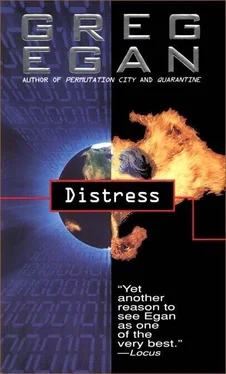

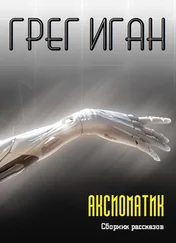

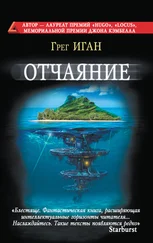
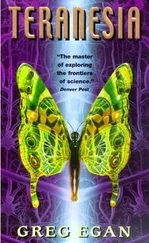
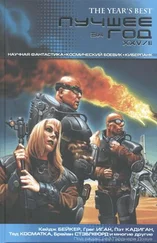


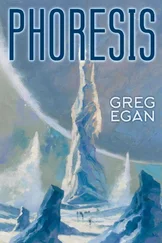
![Грег Иган - Рассказы [компиляция]](/books/419837/greg-igan-rasskazy-kompilyaciya-thumb.webp)
